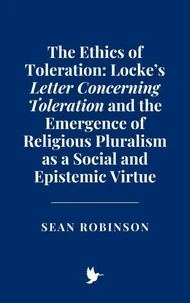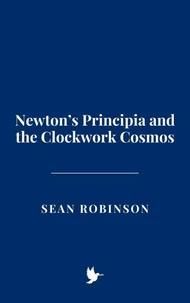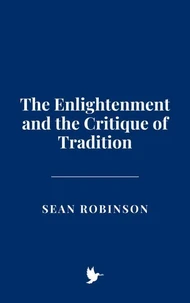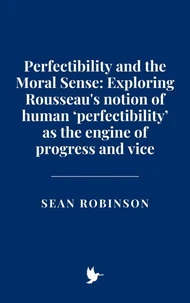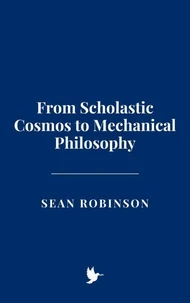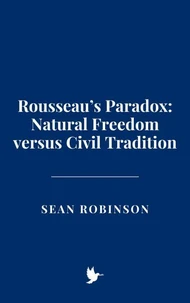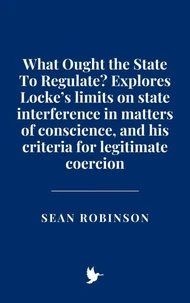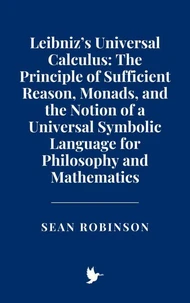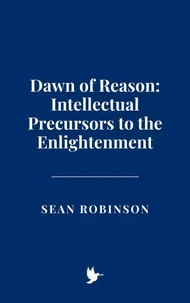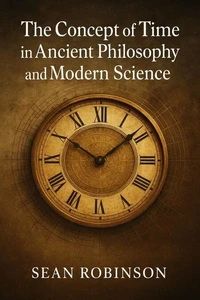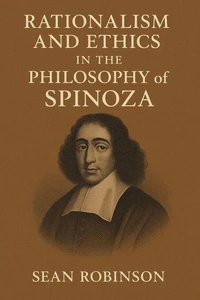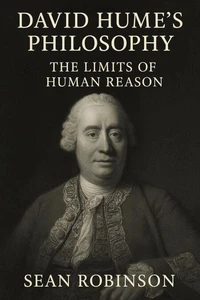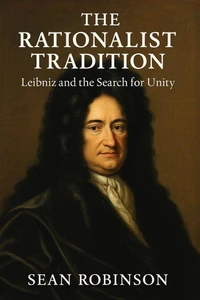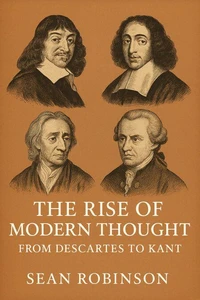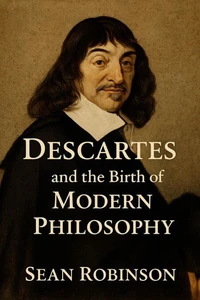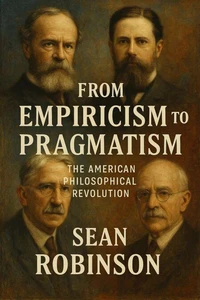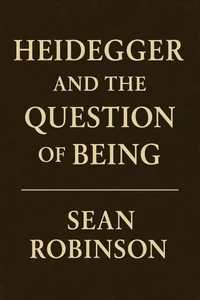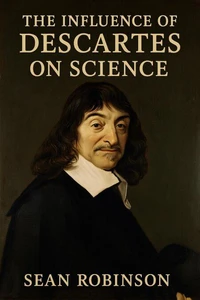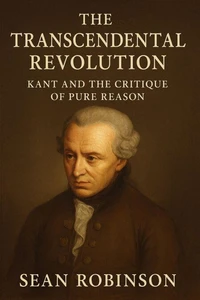The Public Sphere and Sacred Belief: Assessing Locke’s view on religious assemblies, preaching, and the limits of public expression of faith
Par :Formats :
Disponible dans votre compte client Decitre ou Furet du Nord dès validation de votre commande. Le format ePub est :
- Compatible avec une lecture sur My Vivlio (smartphone, tablette, ordinateur)
- Compatible avec une lecture sur liseuses Vivlio
- Pour les liseuses autres que Vivlio, vous devez utiliser le logiciel Adobe Digital Edition. Non compatible avec la lecture sur les liseuses Kindle, Remarkable et Sony
 , qui est-ce ?
, qui est-ce ?Notre partenaire de plateforme de lecture numérique où vous retrouverez l'ensemble de vos ebooks gratuitement
Pour en savoir plus sur nos ebooks, consultez notre aide en ligne ici
- FormatePub
- ISBN8231492602
- EAN9798231492602
- Date de parution19/06/2025
- Protection num.pas de protection
- Infos supplémentairesepub
- ÉditeurWalzone Press
Résumé
This book offers a compelling and rigorous exploration of one of history's most influential thinkers on religious freedom and political authority. Grounded in meticulous historical scholarship and rich philosophical analysis, this book unpacks John Locke's nuanced arguments about the delicate balance between individual conscience, public worship, and the state's role in regulating faith. Set against the turbulent backdrop of seventeenth-century England-a time marked by civil wars, religious upheaval, and the birth of modern democracy-this volume reveals how Locke's ideas about toleration, preaching, and public expression reshaped the boundaries of religious liberty and helped forge the foundations of the secular, pluralistic societies we inhabit today.
Each chapter delves deep into themes such as the legitimacy of religious assemblies, the right to preach, the power of print culture, and the complex interplay between sacred speech and public order. With engaging historical narratives, incisive interpretations of primary texts, and thoughtful comparisons with Locke's contemporaries, this book not only illuminates Locke's enduring influence but also offers vital insights into ongoing global debates about faith, freedom, and the role of religion in the public sphere.
Perfect for scholars, students, and readers interested in philosophy, history, political theory, and religious studies, this book bridges the past and present, showing how Locke's vision continues to challenge and inspire our understanding of liberty and belief in a diverse world.
Each chapter delves deep into themes such as the legitimacy of religious assemblies, the right to preach, the power of print culture, and the complex interplay between sacred speech and public order. With engaging historical narratives, incisive interpretations of primary texts, and thoughtful comparisons with Locke's contemporaries, this book not only illuminates Locke's enduring influence but also offers vital insights into ongoing global debates about faith, freedom, and the role of religion in the public sphere.
Perfect for scholars, students, and readers interested in philosophy, history, political theory, and religious studies, this book bridges the past and present, showing how Locke's vision continues to challenge and inspire our understanding of liberty and belief in a diverse world.
This book offers a compelling and rigorous exploration of one of history's most influential thinkers on religious freedom and political authority. Grounded in meticulous historical scholarship and rich philosophical analysis, this book unpacks John Locke's nuanced arguments about the delicate balance between individual conscience, public worship, and the state's role in regulating faith. Set against the turbulent backdrop of seventeenth-century England-a time marked by civil wars, religious upheaval, and the birth of modern democracy-this volume reveals how Locke's ideas about toleration, preaching, and public expression reshaped the boundaries of religious liberty and helped forge the foundations of the secular, pluralistic societies we inhabit today.
Each chapter delves deep into themes such as the legitimacy of religious assemblies, the right to preach, the power of print culture, and the complex interplay between sacred speech and public order. With engaging historical narratives, incisive interpretations of primary texts, and thoughtful comparisons with Locke's contemporaries, this book not only illuminates Locke's enduring influence but also offers vital insights into ongoing global debates about faith, freedom, and the role of religion in the public sphere.
Perfect for scholars, students, and readers interested in philosophy, history, political theory, and religious studies, this book bridges the past and present, showing how Locke's vision continues to challenge and inspire our understanding of liberty and belief in a diverse world.
Each chapter delves deep into themes such as the legitimacy of religious assemblies, the right to preach, the power of print culture, and the complex interplay between sacred speech and public order. With engaging historical narratives, incisive interpretations of primary texts, and thoughtful comparisons with Locke's contemporaries, this book not only illuminates Locke's enduring influence but also offers vital insights into ongoing global debates about faith, freedom, and the role of religion in the public sphere.
Perfect for scholars, students, and readers interested in philosophy, history, political theory, and religious studies, this book bridges the past and present, showing how Locke's vision continues to challenge and inspire our understanding of liberty and belief in a diverse world.




